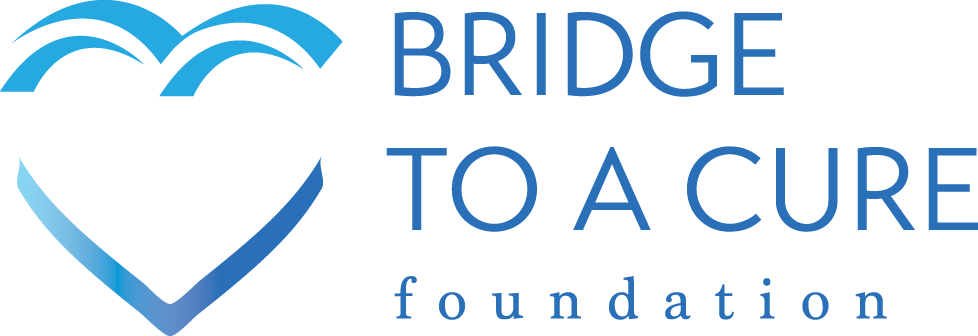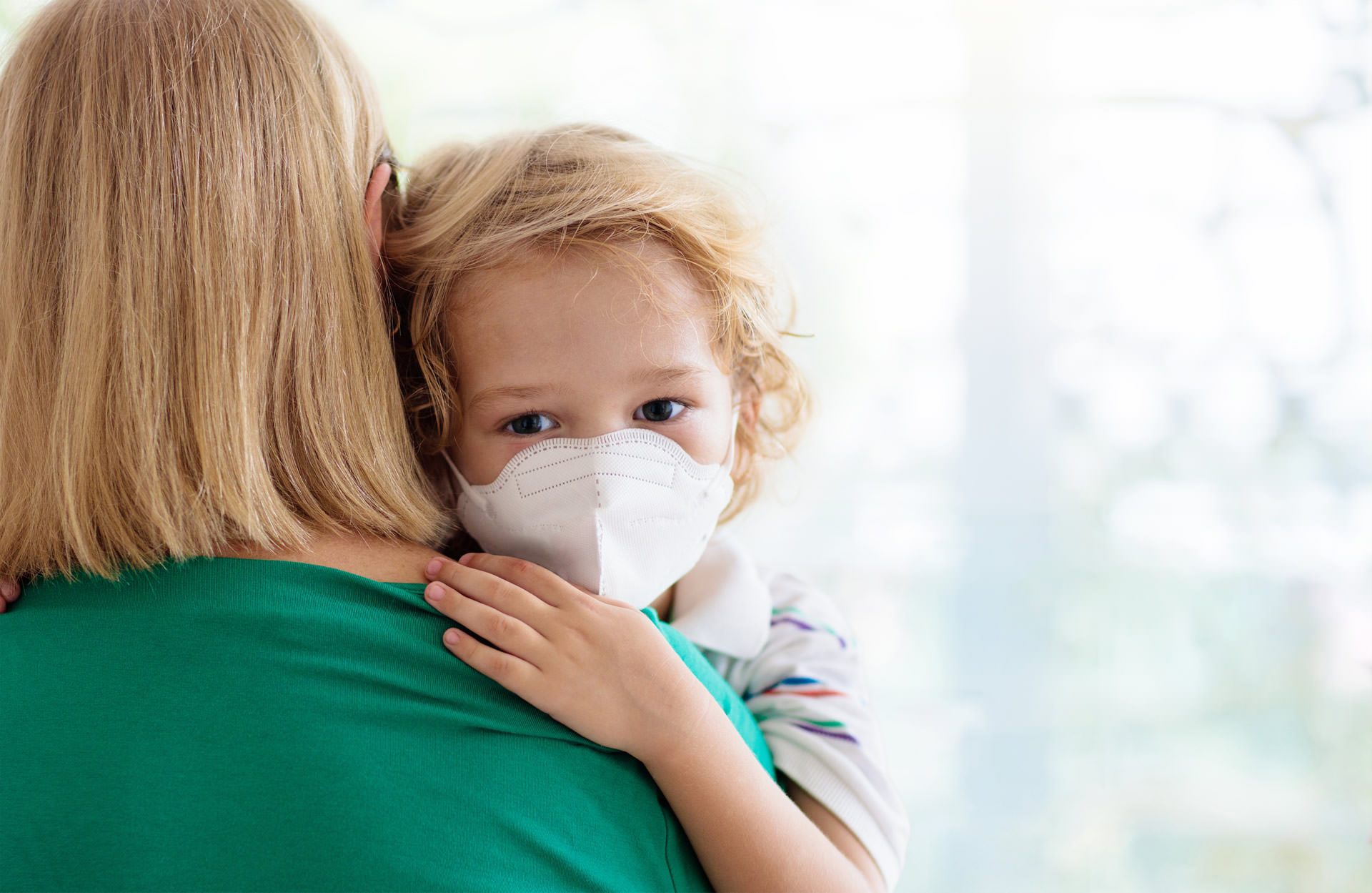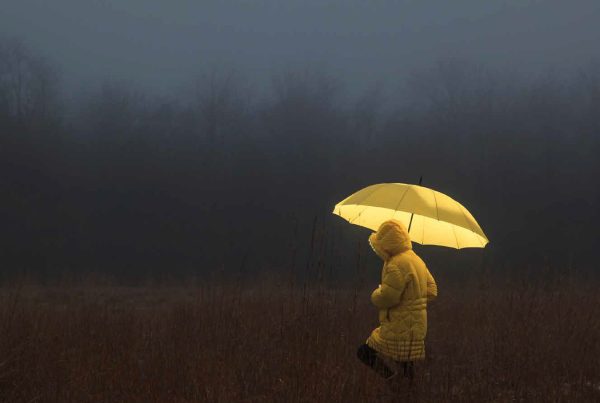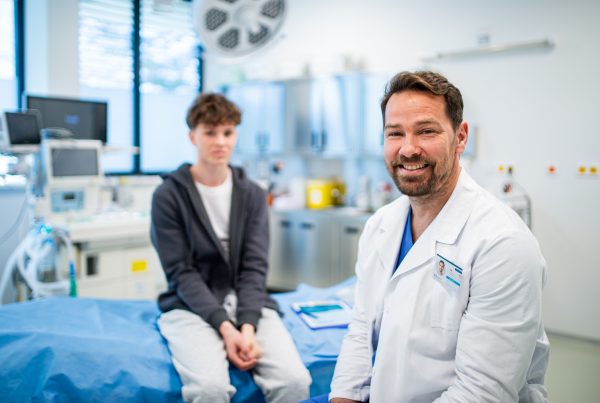What we can do to fight the trauma of childhood cancer + COVID-19
Every time 5-year-old Julia Malicki goes to the doctor for cancer treatments, she has to brave having a cotton swab stuck up her nose to the back of her throat to test for coronavirus. The fear and discomfort she endures seems almost unbearable for a child who has already lost her right eye, and 70% of the vision in her left, to a rare form of cancer called retinoblastoma.
It’s anguishing for her and for her mom, Jessica.
“It’s a lot of emotional turmoil as a child to have to go through that fear,” Jessica told USA Today in an article titled “‘Like a new diagnosis’: Cancer families struggle to continue treatment amid coronavirus pandemic.” “The COVID testing really impacted (her).”
Cancer + COVID-19: Traumatizing Kids & Families
Surgery, radiation, and chemotherapy already traumatize families emotionally, psychologically, and financially. Now they face the added fear and worry of contracting another potentially fatal disease.
Since October 2016, Julia’s family has traveled from Wisconsin to New York City every four weeks for her tests and treatments. After driving 17 hours, the family has arrived to find motels closed due to the pandemic. Due to COVID-19 rules, only her mother can be with her during hospital visits, depriving Jessica of the support of her husband or other family.
Disrupting Caregiving Comfort
Some patients have had their treatments postponed or delayed. Lakelynn Markham, a 6-year-old from Holly Springs, N.C., became a candidate for a clinical trial three years ago after doctors discovered a tumor pressing on critical nerves in her neck, disqualifying her from surgery.
For half of her life, Lakelynn and her family traveled to the Dana-Farber Cancer Institute in Boston for her treatment. The pandemic ended those trips. She now sees doctors at a Duke University Medical Center and receives treatments via overnight courier.
It means that she now has to fight for her life without her “superhero,” a Boston nurse named Shawn, who used to help her through her treatments.
“He has magic,” Lakelynn told Raleigh, N.C. radio station WRAL, explaining that when Shawn prepared her IV, his magical hands made sure the needle didn’t hurt at all.
Children like Lakelynn get to know and trust their doctors and nurses, and depend on routines to help them through medical trauma. Changing routines can increase a child’s fear and anxiety.
They also face struggles that make the inconveniences healthy people face — like having to wear masks and maintain social distance — seem minor. Lakelynn has been doing these things since long before the pandemic began. And while she understands why she can’t play with her friends, it is still heartbreaking for her mom to watch her staring out the window at other kids having fun.
Raising the Stakes of Pediatric Cancer
For children battling cancer and their families, COVID-19 has disrupted surgeries, radiation and chemotherapy treatments, and added to their emotional, financial, and psychological trauma. The same is true for children and families fighting other major medical issues.
A new study in the journal JAMA Pediatrics looked at 48 children in the United States in intensive care with COVID-19. It found that 40 of them had significant medical issues and half of these were categorized as “medically complex,” meaning they were either dependent on technological support for survival or faced serious medical issues such as immunosuppression, usually connected to cancer treatment, the New York Times reports.
“Children with immunodeficiencies or children who have had chemotherapy are at higher risk for serious illness,” the article notes.
Yet children without previous medical problems have also ended up in intensive care, sometimes suffering from a condition related to COVID-19 known as pediatric multisystem inflammatory syndrome. It develops weeks after the initial coronavirus infection and assaults a child’s circulatory system with inflammation rather than directly attacking the lungs.
Treatment Must Go On
Despite the risks posed by the pandemic, experts warn against discontinuing chemotherapy, surgery, radiation, and other therapies for children battling cancer.
“We have observed in our conversations with colleagues from around the world that it is giving us major disruptions, and that children will die or have died, not because of the infection but because of how COVID-19 has affected their (health care) services,” Dr. Carlos Rodriguez-Galindo, told U.S. News.
Rodriguez-Galindo is director of St. Jude’s Global COVID-19 Observatory and Resource Center for Childhood Cancer, a new database of resources for medical professionals specializing in treating pediatric cancer. Similar to the national pediatric cancer database advocated by Bridge to a Cure Foundation, it includes a resource library, a global registry of pediatric cancer patients infected with COVID-19, and a collaboration space for healthcare professionals.
“We have learned from them that even the children that have active therapy for cancer with COVID-19 don’t seem to do that poorly, and that is reassuring.”
As a result of the pandemic, children and families battling cancer and other chronic and terminal diseases and conditions face longer odds and more harrowing battles than they did before. They need our help.
How You Can Help
- Follow COVID-19 guidelines including wearing a mask and staying at least six feet away from people when in public and washing your hands frequently. Parents of kids battling cancer appreciate when we do our part to stop the spread and help keep their kids safe.
- Support families who have lost children to cancer and those still in the fight. Some families who have lost children are experiencing PTSD and anguish over what other childhood cancer families and patients now face in the pandemic. Some practical ways mentioned in this article include contacting families via social media and asking how you can help — financially, through donations of supplies, or by offering to help with shopping or other errands. Visit via phone and video and be there to listen and provide emotional support.
- Donate blood and blood products such as platelets to help combat shortages due to blood drives that have been canceled due to the pandemic. Cancer patients desperately need these, so contact your local blood bank to schedule an appointment.
- Join the National Bone Marrow Donor Registry. Donated bone marrow and stem cells are a critical part of cancer treatment that help save lives. Learn more and join the national database/registry at DKMS.org or BeTheMatch.org.
- Make your voice heard through Bridge To A Cure. The Bridge To A Cure Foundation is working to help kids with cancer and their families by advocating for greater efficiency, collaboration and data sharing to find effective treatments and cures. Stay updated on our efforts, comment on the fight, and learn about other ways to help when you visit BridgeToACure.org and sign up to receive updates.
Social media posts:
Children with immunodeficiencies and those who have had chemotherapy are at higher risk for serious illness due to COVID-19.
Families going through surgery, radiation, and chemotherapy now face added trauma of possibly contracting another potentially fatal disease.
Lakelynn has to fight for her life without her “superhero,” a Boston nurse named Shawn who used to help her through her treatments.
Children fighting cancer get to know and trust their doctors and nurses. Changing caregivers and routines adds to their fear and anxiety.
Despite risks posed by the pandemic, experts warn against discontinuing chemotherapy, surgery, radiation and other therapies.
Support families who have lost children to cancer and those still in the fight. Visit www.BridgeToACure.org.
